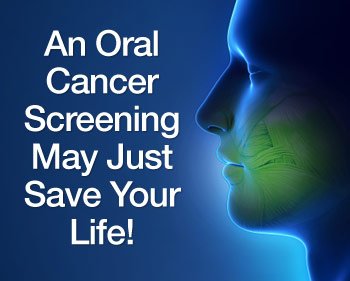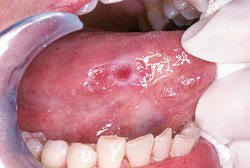Would you take a simple test that could alert you to the possibility of oral cancer early on? The good news is that such a test exists, and it could save your life. Early detection of oral cancer has been shown to increase survival rates to 80% or higher. And the best part? An oral cancer screening is a routine part of your dental checkup at Cherokee Dental Professionals, something that is necessary to maintain your overall health.
An oral cancer screening is quick, painless, and designed to identify small changes in the tissues of your mouth, lips, and tongue that could indicate the early stages of cancer. The screening primarily involves a visual examination, coupled with a tactile (touch) assessment. If anything unusual is detected, a small tissue sample may be taken for further lab analysis.


